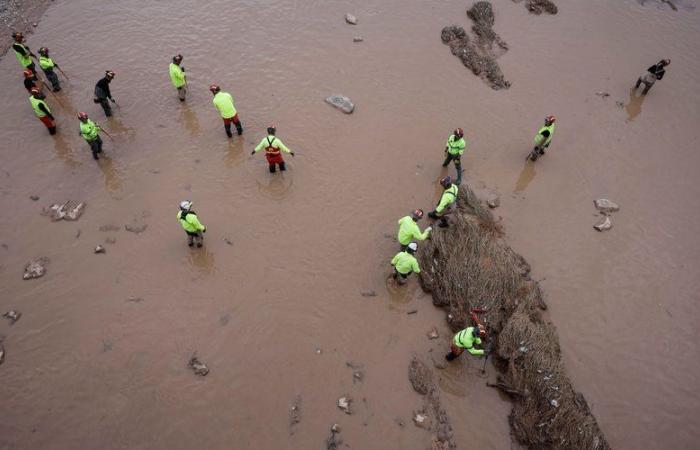
After the worst of storm DANA in the province of Valencia, invisible dangers lurk and add to the much more obvious material damage, complicating the clean-up work.
After the worst of the storm Dana in the province of Valencia, dangers invisible to the naked eye lurk and are added to the much more obvious material damage: the micro-organisms which proliferate in the stagnant waters, constituting a fertile ground for pathogens that can endanger the health of the population.
Gastroenteritis is the most imminent and likely, which should be benign in most cases, according to our colleagues at El Pais.
A smell that is difficult to bear
Among the invisible nuisances, pestilential odors of rotten meat and eggs accompany a proliferation of mosquitoes… More than ten days after the floods which left at least 219 dead, most of the numerous municipalities have not managed to evacuate the mud which suffocates them.
It is dangerous to breathe them. Many volunteers who came to help complain of dizziness and migraines, forcing them to wear a mask, as during the Covid-19 epidemic.
We are as concerned about public health as we are about mental health. We know that a catastrophe like DANA also generates a great psychological impact and we work from the first moment for resources:
From the Government we are working on the creation of units… pic.twitter.com/AUQ0bP1fYX
— Monica García (@Monica_Garcia_G) https://twitter.com/Monica_Garcia_G/status/1854873475099320773?ref_src=twsrc%5Etfw
Even more invisible, and all the more insidious, is the mental health of the residents who survived the tragedy: “We are as concerned about public health as we are about mental health. We know that a disaster like DANA generates a great psychological impact and we are working on it from the first moments. We are working on the creation of emergency psychosocial units and we sent a team of psychologists and psychiatrists from UME to provide care to those affected and professionals,” said Monica Garcia on X, Minister of Health in Spain.





